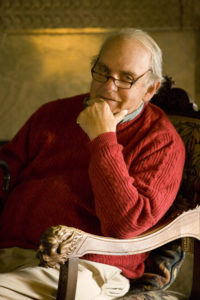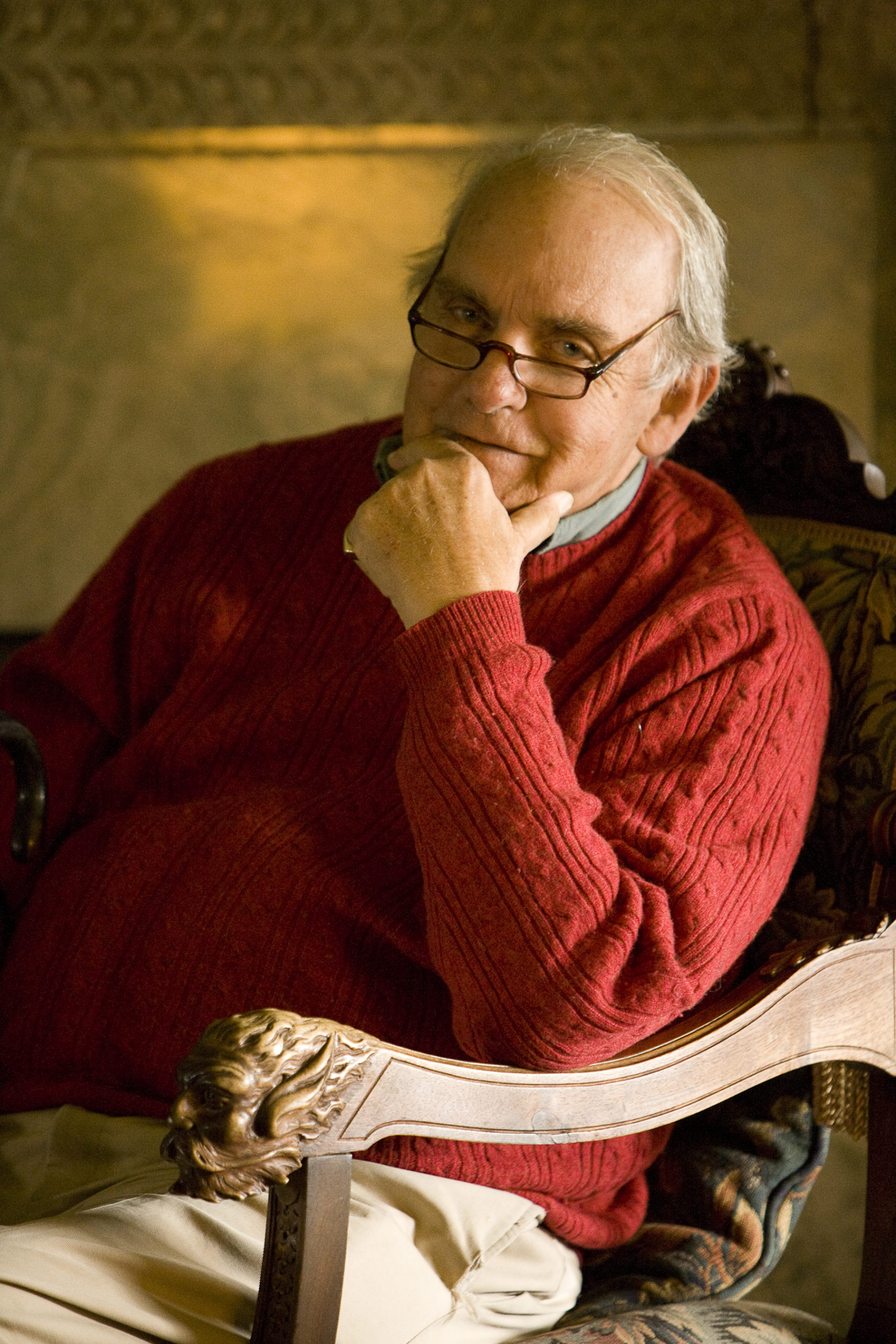
Frederick Buechner (1926-2022)
Blessed are the poor in spirit, for theirs is the kingdom of heaven (Matthew 5:3).
A Tribute to Frederick Buechner
On August 15, 2022, Frederick Buechner died at Rupert, Vermont at age 96. He wrote novels, sermon collections, pithy essays, and moving memoirs with a lyricism, honesty, and wisdom that ensconced me as a young man and moved me to give back by squeezing some writing out of my busy life. While I could never claim to approach Buechner’s caliber, the greatest praise I will ever receive as a writer appears in the first clause of Chris Glaser’s back cover endorsement on my first book: “In the tradition of Frederick Buechner…” Frederick Buechner’s sermon collections, The Hungering Dark and The Magnificent Defeat, inspired that book, The Ancient Laugh of God.
Buechner drew me as a young man into a freedom and joy in writing from faith and for faith. This post begins an eight part series in which I sample from some favorite passages which shed light on each of the eight Beatitudes. I offer these pieces in tribute to a man whose work not only inspired me as a writer but stimulated and nourished my faith.
Shaking the Dust Off of Words Like “Judgment”
I first encountered Frederick Buechner’s writing when I happened upon a copy of Wishful Thinking: A Theological ABC (later revised and re-subtitled, A Seeker’s ABC). Of Wishful Thinking, he later wrote: “A few years ago I wrote a book called Wishful Thinking: A Theological ABC, in which I tried to shake a little of the dust off a lot of moth-eaten old religious words and put some color back in their cheeks” (Peculiar Treasures, viii). He succeeded, and Wishful Thinking remains my trusted companion.
In the first Beatitude, “Blessed are the poor in spirit, for theirs is the kingdom of heaven” (Mt.5:3), Jesus blesses those who face the fact that, ultimately, they have nothing worth having, have no life worth living, and no lasting joy without God’s loving initiative (grace). The poor in spirit do not come before God with a title or deed claiming a place in God’s realm. They come empty handed as beggars and make their plea without pretense.
Frederick Buechner’s piece on “Judgment” in Wishful Thinking is an excellent resource for anyone who wishes to cultivate poverty of spirit:
We are all of us judged every day. We are judged by the face that looks back at us from the bathroom mirror. We are judged by the faces of the people we love and by the faces and lives of our children and by our dreams. We are judged by the faces of the people we do not love. Each day finds us at the junction of many roads, and we are judged as much by the roads we have not taken as by the roads we have.
The New Testament proclaims that at some unforeseeable time in the future, God will ring down the final curtain on history, and there will come a Day on which all our days and all the judgments upon us and all our judgments upon each other will themselves be judged. The judge will be Christ. In other words, the one who judges us most finally will be the one who loves us most fully.
Romantic love is blind to everything except what is lovable and lovely, but Christ’s love sees us with terrible clarity and sees us whole. Christ’s love so wishes our joy that it is ruthless against everything in us that diminishes our joy. The worst sentence Love can pass is that we behold the suffering that Love has endured for our sake, and that is also our acquittal. The justice and mercy of the judge are ultimately one (Wishful Thinking: A Seeker’s ABC, p.58).
Putting Color Back in the Cheeks of “Grace”
If final judgment entails suffering for our sins, this is it: “that we behold the suffering Love has endured for our sake.” Of course, that entails beholding the suffering and death of Christ, not only on Calvary, but in our daily lives, the ways great and small that we deny Christ and his love and persecute him, usually unawares. All of us deserve this sentence. All of us are radically vulnerable to divine judgment.
Yet, “the one who judges us most finally will be the one who loves us most fully.” Beholding his suffering for us “is also our acquittal.” Despite all the failures and disappointments and sufferings of life, “Christ’s love so wishes our joy that it is ruthless against everything in us that diminishes our joy.” Judgment Day, whenever or whatever that may be, will be the day when Christ brings all sinners to eternal joy. It is all grace in which “the justice and mercy of the judge are ultimately one.”
In an announcement of Frederick Buechner’s death, his son-in-law, David Altshuler, wrote, “His wonder at the miracle of grace never left him….” In many playful, lyrical, anticky ways, Buechner’s whole literary corpus celebrates the wonder of grace. If the word, “grace,” seems “a moth-eaten old religious word” to you, read Frederick Buechner. He puts color back in its cheeks.
Related Posts


I like you, discovered Buechner early. My sermon prepare class in seminary required us to read, “Telling the Truth.” I have not stopped reading him since.
Thanks for this remembrance.
Telling the Truth is a great book. More on that later!